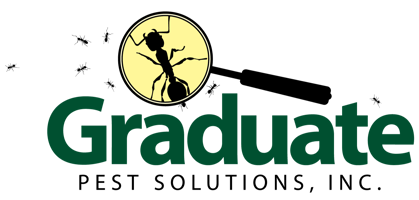When you think of bees’ nests, the immediate imagery is that of a paper-like mass hanging from a tree or rain gutter. While that is a common nest formation, those aren’t the only hives to be aware of. In New England, there are multiple species of bees (and wasps) that build their hives on or below the ground. Bees with ground nests are more common than you think. Use this guide to determine which stinging insect you’re contending with.
Yellowjackets
Probably the most easily identifiable species of wasp, these pests sport the iconic black and yellow stripes. Part of the reason they’re so commonly seen is because of their diet: sugar and proteins. These food sources are prevalent at picnics and barbecues.
While their nests can be above ground, the below-ground nests are the difficult ones to spot. The majority of the hive is built into the dirt with only entrance holes visible. The holes can be relatively small and sometimes ringed with their paper-like material. They frequently build nests in abandoned mouse or chipmunk burrows. Below is an example of what an entrance hole can look like.

Cicada Killer Wasp
The “Cicada Killer” wasp sounds more dangerous than it is in real life. These wasps can become an unwelcome nuisance as males constantly patrol their underground nesting sites. Male wasps may aggressively fly right up to people in defense of their nest even though they cannot sting.
Mining Bees
These ground-dwellers closely resemble the common honeybee and perform similar beneficial tasks of pollinating. They are friendly, non-aggressive, and typically do not sting or bite unless handled. Their burrow openings are distinguishable by the waxy covering that waterproofs their nest.
Learn how to spot the differences between these stinging insects with our visual guide to bee and wasp identification:
Download Our Guide to Stinging InsectsThe team at Graduate Pest Solutions knows how to deal with bees with ground nests out of pest management. Call us at 413-566-8222 or contact us with any questions or if you are experiencing a pest problem. We have the knowledge and the services necessary to help keep your home pest-free!
YOU MAY ALSO LIKE
These related articles

